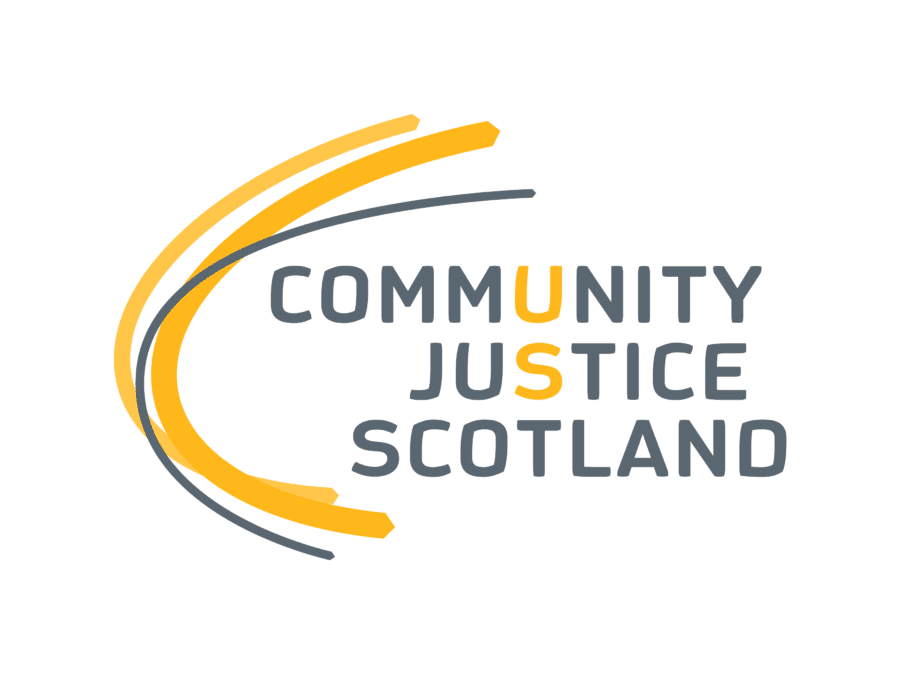Community Payback Order: Summary Of Local Authority Annual Reports 2022-23
We are pleased to introduce the sixth summary of local authority annual reports on Community Payback Orders (CPOs) produced by Community Justice Scotland.
The report provides an overview activity completed by people in local areas subject to a CPO and is based on local authority annual reports on the operation of CPOs within their area during the reporting year. Similar to last year’s report, we have included a summary of the contextual factors which impact on the delivery of CPOs. Despite financial and resource challenges facing the public sector, the workforce which supports the delivery of CPOs have been unwavering in their commitment to person-centred and trauma responsive approaches. It is clear from the returns that ensuring people receive a high level of support and that they are able to access services and interventions to reduce their risk of re-offending remains a priority.
Laid before the Scottish Parliament by Community Justice Scotland under Section 227ZM of the Criminal Procedure (Scotland) Act 1995 March 2024 SG/2024/10
01 Foreword

CJS is the national body for promoting the Scottish Government’s National Strategy for Community Justice, by making sure that people understand the benefits of early intervention, prevention and community sentencing. Ensuring that the Justice System supports the option for a court to impose a Community Payback Order is key to delivering the Vision for Justice and the National Strategy for Community Justice
Community Payback Orders (CPOs) serve as judicial mechanisms for individuals convicted of offences to contribute positively to their communities. These orders, which are determined by sheriffs and judges based on the nature of the offence and the support requirements of the individual, encompass a range of ten possible requirements for an individual to abide by.
It is widely recognised that individuals involved in the justice system often grapple with complex health and social challenges which contribute to their criminal behaviour. CPOs play a pivotal role in fostering accountability while offering opportunities for rehabilitation and community reintegration, working with the individual to reduce the likelihood of reoffending.
This report provides an overview of the CPOs imposed by Scottish courts during the 2022-2023 period, drawing insights from all local authority areas. Notably, there has been a 20% increase in the number of CPOs issued since the previous reporting period, with 67% of these orders incorporating a supervision requirement. The increase is likely to be in part due to Covid recovery but also underscores recognition of the complexity of many individual’s needs and has increased the demands placed on justice social workers and third sector services.
Embedded within this report are accounts of innovative unpaid work services devised and executed by staff striving to assist individuals in addressing their needs, repairing their relationships, and fostering their accountability through community engagement. These initiatives encompass various endeavours, such as enhancing and preserving community spaces through the cultivation of gardens, cycle pathway repair, and assistance with flood damage. Other unpaid work schemes include actively supporting vulnerable populations through preparing refugee accommodation, enhancing children’s playgrounds, and uplifting and refurbishing unwanted garden furniture for people needing support with physical work. CPO s delivered the equivalent of over £14 million of work in communities.
However, alongside capturing this essential work, the returns for this report also make clear the key challenges faced by local authorities and third-sector organisations in delivering effective CPOs. One of the main problems is that public sector resource constraints have exacerbated problems related to recruiting and retaining experienced staff to carry out that essential work with individuals referred to them. Moreover, the increasing demand for court reports, coupled with the complexity of caseloads and issues with IT systems, currently present additional barriers to the effective execution of CPOs.
CJS has repeatedly highlighted the fact that sufficient resourcing of local statutory and third sector organisations to meet demand is key to delivery of Community Justice overall and CPOs in particular. That remains a fundamental requirement if the Vision for Justice set out by Scottish Government is to be delivered.

Catherine Dyer
Chair of CJS Board
02 Key Findings
- In 2022-23, there were 14,700 CPOs issued. This was 20% higher than in 2021-22 but the third lowest in the last decade. From 2012-13 to 2019-20, there was an average of 18,000. The reduced numbers are likely to be representative of continued Covid-19 implications.
- Around 67% of all CPOs issued included a supervision requirement in 2022-23.
- Not all local authority areas in Scotland have access to the Caledonian System to address domestic abuse behaviours and some have no scheme to address domestic abuse. There are some reports from those who do offer the programme that the current funding arrangements to do so are insufficient.
- Recruitment of new staff and retainment of experienced workers remains a challenge for justice social work and these difficulties continue to be exacerbated by financial constraints and short-term funding.
- Since Covid-19, some areas are struggling to find individual placements for those on unpaid work as previous opportunities no longer exist.
- Many areas have strong connections with local Alcohol and Drug Partnerships to support individuals on CPOs deal with substance use issues. Supervisors often refer individuals to drug and alcohol services, or it may be mandated as part of the CPO. Despite the low number of people on mandated treatment, reports suggest active participation in treatment programs, indicating referrals are often made by supervisors.
- In January 2022 IT errors with the LS/CMI risk assessment tool were identified and justice social workers moved to a paper based system. Local authority areas report that case management planning took longer using paper systems and the agreement to upload data from paper returns now that the electronic system is working will likely be an additional pressure.
- At the end of March 2023 there were approximately 28,000 trials outstanding in Scotland. Local authority area justice social workers report that balancing the increasing demands of required court activity, including the provision of information to inform sentencing decisions as increased courts were brought in stream, is still adversely impacting on their ability to carry out first direct contacts with individuals sentenced to a CPO.
- Many areas highlighted the complex needs of those subject to CPOs, many of which cannot be addressed by universal services due to a lack of provision and/or long wait times. As a result, justice social work, in collaboration with statutory and non-statutory partners, are devising new and innovative ways to support individuals and help them complete their community payback orders.
- In the year 2022-23, there were over 1.3 million hours of unpaid work carried out across Scotland. Since its inception, over 10 million hours of unpaid work have been completed, supporting the communities in which offences have occurred. The range of work undertaken has been vast and has benefited citizens in a multitude of ways. To provide a clearer understanding in financial terms, if the individuals who have engaged in unpaid work over the last year were compensated at Scotland’s living wage of £10.90 per hour, their cumulative hours would translate to over £14million, underscoring the significant value of CPOs for communities.
- People completing CPOs highlight significant benefits. Supervision requirements give people the opportunity to be supported in better understanding the impact of their behaviours and to make changes. Unpaid work offers people opportunities to make reparation within their communities whilst building confidence and learning new skills. Communities benefit from unpaid work in many ways including the transformation of public spaces and school playgrounds and improving the living environment for community members.
03 Introduction
This report presents a summary of responses to questions posed to each local authority area about the delivery of CPOs during the 2022-23 reporting year. The circular and question template is included as an appendix to this report.
The report also draws on justice social work data which is published in “Justice social work statistics in Scotland: 2022-23.” The statistical publication was published by the Scottish Government on 16 January 2024 and presents national-level information on justice social work activity in Scotland. It includes data on justice social work services and social work orders, as well as characteristics of the individuals involved.
This report was created by Community Justice Scotland (CJS) and will be laid before the Scottish Parliament. This is the twelfth summary report and the sixth to be published under the amended legislative reporting arrangements. Previous summaries can be found on the CJS and Scottish Government websites.
04 Background
The CPO replaced community service orders, supervised attendance orders and probation orders on 1st February 2011 and is available to courts for offences committed on or after that date. The Criminal Procedure (Scotland) Act 1995 provides the legislative framework for CPOs.
A CPO is a sentence of the court and can consist of a number of individual elements, known as requirements. There are now ten different requirements which can be issued as part of the CPO. Table 1 provides a brief overview of the requirements but a full list of requirements and what they entail can be found within the Community Payback Order: practice guidance.
| Supervision requirement | Unpaid work or ‘other activity’ requirement |
| Programme requirement | Residence requirement |
| Mental health treatment requirement | Drug treatment requirement |
| Alcohol treatment requirement | Conduct requirement |
| Compensation requirement | Restricted movement requirement |
CPOs can be made for a period of between 6 months and 3 years, with the exception of where a CPO consists solely of an unpaid work or other activity requirement. In these instances, the specified number of unpaid work hours requires to be completed within 3 months for a level 1 unpaid work requirement (for those given between 20 and 100 hours) and within 6 months for a level 2 (for those given 101-300 hours), unless a longer period is specified by the court at the point of sentence.
The power to vary CPOs under Section 5 and schedule 4 of the Coronavirus (Scotland) Act 2020 remained available during the reporting year. The continuing effect of the legislation during that period was to require that a minimum of 12 months was allowed to complete any new unpaid work or other activity requirements, temporarily replacing the normal minimum periods specified under s227L of the Criminal Procedure (Scotland) Act 1995. Each local authority has a team of highly skilled and trained workers who have responsibility for the delivery of CPOs. Where the court has imposed an unpaid work requirement alone, the responsible officer will be the unpaid work case manager. In any other form of CPO the responsible officer will be the justice social worker who will supervise the individuals subject
05 Addressing Risk and Need
Assessing and Managing Risk
Public safety is paramount in the delivery of CPOs and early application of appropriate risk assessment tools informs risk and case management plans. This involves assessing the seriousness of the particular harm as well as its likelihood, and putting in place preventative actions to reduce the possibility or seriousness of harm. Justice social work professionals use a range of risk assessment tools when making risk assessments and developing case management plans, the most commonly used risk management tools are:
- Level of Service/Case Management Inventory (LS/CMI) which is a general risk management assessment to identify risk and need.
- Spousal Abuse Risk Assessment Version 3 (SARA V3) which is a specific risk assessment to assess the likelihood of domestic abuse behaviours.
- Stable and Acute 2007 (SA07) Risk Assessment which is a specific risk assessment for those who have been convicted of a sexual offence.
If you’d like more detail on these risk assessments, you can access the CPO report from 2021/2022 which goes into further detail here.
Multi-agency public protection arrangements (MAPPA) are critical for risk management to ensure that the risk posed by those convicted of violent and sexual offences is managed appropriately. For individuals subject to both CPO supervision and MAPPA, the social worker will fulfil the role of lead agency. Effective information sharing between agencies is a critical part of the assessment and management of risk. Information from third sector providers is particularly sought where they are supporting the victim(s).
Progress continues on developing the successor to the ViSOR system, known as the Multi-Agency Public Protection System “MAPPS.” Spearheaded by the Home Office, this project entails reassessing information sharing protocols within MAPPA to ensure alignment with its objectives. The projects aims to retain the benefits of effective partnership collaboration while meeting the demands of the new system. However, the returns from this reporting year have expressed some concern from partners that sharing protocols between police and non vetted staff may diminish the good partnership working. In addition to this, the returns indicate continued difficulties in securing relevant health information from GPs for people completing unpaid work.
Supervision – What is a Supervision Requirement?
One way risk is managed is through a supervision requirement. A supervision requirement aims to change the way the person thinks and behaves by compelling them to attend regular appointments with a justice social worker. Justice social workers are professionally qualified and have the required expertise to understand the causes of crime and to deploy person centred actions which reduce further offending. They use a rigorous evidence base and are required to keep up to date through continuous professional development.
Supervision involves motivating and supporting the person to desist from further offending, preparing and implementing their case management plan, reviewing progress, organising levels and types of contact and resources to support the interventions, and supporting the person to achieve the intended outcome of each intervention. These are required by national standards.
A supervision requirement is mandatory when a CPO is imposed on an individual under 18 years old, where the court imposes any requirement other than an unpaid work or other activity requirement, or where the court imposes two or more requirements.
Where the order contains a supervision requirement, the responsible officer will be a suitably qualified and registered social worker. Whilst accountability in such situations rest with the responsible officer, non-social work qualified staff may, where appropriate, undertake work with the individual as part of the order.
The responsible officer has two key roles in supervision:
- To work with the individual and relevant others to achieve change in the individuals behaviour to encourage desistance from offending behaviours; and
- To work with the individual to achieve compliance.
Benefits of a Supervision Requirement:
The assessment, identification and response to an individual’s risks and needs are essential components of rehabilitation. People subject to CPOs often face simultaneous challenges in a number of areas including financial, substance misuse, housing and health. Research shows that community sentences are more effective in reducing reoffending than short-term prison sentences and may provide greater opportunity for rehabilitation.
Attending to risks and needs as early in a CPO as possible enables individuals to concentrate on offence focused work and bespoke programmes of work that are responsive to the risks and needs of the individual.
Data related to the Supervision Requirement:
In 2022-23, there were 9,882 orders which contained a supervision element. This accounted for around 67% of all CPOs. For the first time since 2019-20, there were slightly less CPOs issued with supervision requirement than unpaid work (68%). This likely reflects the reduced Covid-related restrictions meaning it was easier for unpaid work to be delivered.
Examples of Supervision in Practice:
Whilst an individual may be subject to a specific programme requirement as mandated by court (see below), not all individuals will require or be eligible for an intensive programme. However, people under supervision will engage in offence focused work to address the risk of further offending. The specific focus/material/approach will likely vary by local authority and will be tailored to the individual involved. The returns show that social workers providing supervision recognise the need to address multiple factors such as public protection, rehabilitation, social inclusion, poverty, restitution, recidivism and the impact on service users, families, victims, and the community.
Examples of the type of work included as part of a supervision requirement include supporting people to address the following risks and needs:
- Education, training, and employability
- Experiences of trauma
- Tackling housing instability and homelessness
- Addiction
- Poor mental health and wellbeing
- Social isolation
- Emotional regulation
- Communication skills
- Resolving Conflict – Anger management and alternatives to violence
- Impulsivity
- Internet safety and appropriate use
- Victim empathy
- Problem solving and decision making
- Consequential thinking
- Developing and maintaining positive relationships
- Readiness to change

| Supervision in Practice: Examples from Returns |
|---|
| Practice Example 1: A woman was given an 18 month Community Payback Order, for the offence of carrying an offensive weapon. She has a long history of contact on and off with Justice and mental health services, including suicidal thoughts and active self-harming behaviour. Initial assessment indicated concerns in the following areas: homelessness, mental health, illicit substance misuse. Using the LS/CMI risk assessment she was assessed as very high risk/needs. Following assessment, the case management plan included a referral to Shine mentoring service for support with housing and to assist her to travel to various Courts as she had a number of outstanding matters. There was already a drug treatment service involved and the justice worker liaised closely with the treatment nurse to try and get her to engage fully in drug treatment. She was a care leaver so was offered additional support from this service. All services collaborated fully with professionals’ meetings convened at times of heightened risk to discuss plans, roles and responsibilities. |
| Practice Example 2: Mr B was sentenced to a CPO with Supervision, Conduct and Programme requirements alongside being made subject to Sex Offender Notification Requirements. From the outset of his order there were concerns about his address from Police and Justice Social Work. Mr B understood why services were concerned but was unable to seek alternative accommodation. He was otherwise compliant with his order. The allocated Justice Social Worker took a multi layered approach to addressing this. With Mr B’s knowledge, the order was returned to Court to inform that Mr B was in breach by continuing to live in accommodation that was assessed as unmanageable. While this was progressing; they undertook a piece of work with Mr B to support him to complete a detailed and comprehensive ‘Keep Safe’ plan. The Court ultimately determined to continue the CPO and remain at the current address. Mr B has now completed a significant proportion of his order with no concerns or reports of further offending and has progressed well through the MF:MC Case Managers pack with a view to progressing to the full programme. Staff access a range of other materials, including materials from the Constructs programme to offer bespoke offence-related interventions to meet identified needs within supervision. However, as the case study above illustrates psychosocial interventions are just one of many tools used to manage and reduce risk. Active and alert risk management, within the MAPPA framework if appropriate, is stressed. CPO requirements are used to support risk management plans and the Service uses CPO breach and review processes both to actively support compliance and to respond to changing levels of risk and need. |
| Practice Example 3: The programmes (we deliver) support participants to identify thought processes and behavioural patterns relating to offending behaviours and the impact of those behaviours on themselves and the community. Sessions provide both the tools and support to address these behaviours. Our groupwork programme has been revised to incorporate trauma-informed service delivery with bespoke interventions including inputs on drug/ alcohol awareness and consequential thinking. Group members have commented that they benefitted from the healthy discussions and peer support. |
| Practice Example 4: Due in part to the geographical issues that delivering accredited group intervention within an island community can present in terms of staff complement, access to external resources, availability of training opportunities and lower numbers of individuals typically meeting the criteria for group intervention; the majority of offence focused work continued to be completed on an individual basis, and underpinned by assessment, was tailored to meet the specific needs of those in receipt of support |
Equally important is the effort which has been made to support individuals to address the underlying factors which contribute to offending. By focusing on both need and risk, justice services have worked together to provide holistic support to individuals and help them work on things which will build their social and human capital which is of paramount importance for rehabilitation and desistance from offending.

| Dealing with Risk and Need in Supervision: Examples from the Returns |
|---|
| Practice Example 1: The majority of individuals who are subject to a CPO face multiple and complex challenges in areas such as finances, housing, substance use and health. It is important that we provide support to address these issues (particularly at the onset of an Order), which also assists in the development of relationship-based practice. This provides individuals with a better opportunity to then focus on bespoke programmes of work which are responsive to their risks and needs |
| Practice Example 2: The foundations for supporting anyone on a Community Payback Order (CPO) is to build a relationship, understand their risks and needs. Developing a plan with the person, centred around their hopes, aspirations, needs and risks. Using a strengths based approach with the person to help them to achieve their best outcomes for the future and what it would take to get them there. |
| Practice Example 3: Additional aspects of intervention that have been provided include the “Road to Change” programme delivered by The Creative Change Collective, formerly known as Street Cones, are a team of experienced creative professionals who specialise in working to address social challenges across Scotland. They use anonymous drama and storytelling to help people bring about positive change in their lives through creative practices associated with film, theatre, and performance. The 12-week Road to Change programme encourages participants to draw on their own lived experience, whilst being guided through a range of creative activities that help build self-esteem, confidence, and life skills. The programme is aimed at adults working towards positive outcomes and destinations and can be offered as part of a community sentence. |
The returns highlight the importance of individualised case management plans, gender responsive and trauma responsive approaches, and relationship-based case management. Involving individuals subject to a CPO in the plan was also described as an effective way to encourage engagement and enable them and their supervising officers to set goals and monitor progress.
Conduct – What is a Conduct Requirement?
A conduct requirement requires the individual to do, or refrain from doing, something which is specified in the requirement. This might include restrictions on visiting a particular place or refraining from contact with a given person/group of people. For internet offences, a conduct requirement may be imposed to place restrictions on internet access and limit access to internet enabled devices.
Conduct requirements exist specifically to fill ‘gaps’ left by other requirements, and must not be imposed where another requirement could meet the same objective, e.g. a conduct requirement for attending a drug treatment programme where a drug treatment requirement could be used here instead.
Benefits of a Conduct Requirement:
Conduct requirements provide the Court with additional flexibility to impose requirements on an individual to do or refrain from doing specific actions to promote good behaviour and prevent further offending. A conduct requirement provides Justice Social Work with more robust monitoring opportunities and the ability to return an Order to Court if specific requirements are not being adhered to.
Data related to the Conduct Requirement:
In 2022-23, there were 1,689 CPOs issued with a conduct requirement. The proportion of orders with conduct requirements rose each year between 2015-16 and 2021-22, from 6 per cent to 13 per cent but fell slightly to 12 per cent in 2022-23.
Examples of Conduct Requirements in Practice:
As seen on the returns template referenced in the appendix of the report, areas were not specifically asked about conduct requirements for returns for 2022/2023, Therefore, there are no examples to draw on for this report.
Compensation Requirement – What is a compensations requirement?
A compensation requirement, as part of a CPO, mandates that the individual responsible for an offense must provide compensation for any harm, loss, damage, or other consequences resulting from their actions.
Compensation can be paid either by means of a lump sum or by instalments and should be paid directly to the court.
The compensation must be paid within 18 months from the date the requirement was imposed. If the offender supervision requirement lasts for a shorter period (e.g., less than 18 months), the total sum must be paid at least two months before the end of the supervision period. For instance, if the supervision requirement lasts for 12 months, the compensation must be paid in full by the end of the 10-month period.
The responsible officer, typically a justice social worker, oversees compensation payments. They liaise with the court and require the individual to provide receipts as proof of payment. If the individual fails to pay the required compensation within the specified timeframe, the responsible officer notifies the court through a breach report.
Benefits of a Compensation Requirement:
Compensation Requirements hold offenders accountable for their actions. Knowing that they will be required to compensate victims or cover damages can often serve as an effective deterrent against future offending behaviour. Furthermore, victims often feel a sense of justice and closure when offenders are required to compensate them for losses or damages. It acknowledges the harm experienced by victims and can provide a tangible form of justice.
Data related to Compensation Requirement:
Nationally, there were 442 Compensation Requirements issues for the year 2022/23.
Examples of Compensation Requirement:
As per the returns template referenced in the appendix of the report, local areas were not specifically asked about Compensation Requirements, therefore there are no examples for this report.
Programmes – What is a Programme Requirement?
To be included as a requirement, a programme must meet the legal definition: “a course of other planned set of activities, taking place over a period of time, and provided to individuals or groups of individuals for the purpose of addressing offending behavioural needs”. This includes accredited and non-accredited programmes. Official accreditation for programmes at national level is provided by the Scottish Advisory Panel on Offender Rehabilitation.
A supervision requirement will always be imposed alongside a programme requirement. As part of this, the supervising officer will work closely, communicate with, and participate in reviews with the programme providers to ensure that:
- Individuals are well prepared and motivated for participation in programmes;
- Individuals are well supported to participate in the programme and to learn from it;
- Any non-compliance or other practical hindrances to participation are addressed promptly and effectively; and
- Individuals are well supported to follow up on goals they have set as a result of participation in the programme.
In 2023, the only accredited programme available for use in the community was the Caledonian System which is used to address instances of domestic abuse perpetrated by men against their female partners or former partners. The Caledonian system is an integrated approach to addressing domestic abuse and includes a men’s programme, and supportive services for women and children.
The systems approach within the Caledonian program means that men’s abusive behaviour is not targeted in isolation. The system offers emotional and practical support to women, advice on safety planning, risk assessment and advocacy. In addition to this, the children’s service ensures the rights of all children are upheld.
The men’s programme is a two-year behaviour change programme delivered by highly skilled case managers and group workers. An evaluation of the programme indicated that men who completed the programme posed a lower risk to partners, children and others by the end of the programme.
Moving Forward Making Changes (MFMC) is a behavioural programme designed to provide treatment for men who commit sexual offences or offences with a sexual element. Sessions are focussed on helping participants re-evaluate their life goals and develop skills to achieve those goals without harming others. This course was previously accredited but has been undergoing revision into a new programme entitled Moving Forward 2 Change (MF2C). During 2022-23, the revised programme was piloted in two custodial units, and three community sites in Scotland.
Benefits of a Programme Requirement:
A programme requirement allows an individual to engage in specific offence related programmes to address their risk of offending. These programmes are evidence based and delivered by specially trained workers.
The delivery of accredited programmes allows highly trained professionals to work with an individual to challenge and change knowledge, beliefs, and behaviours which ultimately lowers their risk of further offending.
Data related to Programme Requirements:
In 2022-23, there were 1,010 CPOs issued with a programme requirement. The proportion of orders with a programme requirement rose from five per cent in 2015-16 to eight per cent in 2021- 22, before falling to seven per cent in 2022-23.
In contrast to the generally consistent Caledonian requests observed between 2021/2022 and 2022/2023, accounting for 58% of the total, one local area experienced a 300% surge in Caledonian cases during this timeframe, while another reported a doubling of Caledonian referrals. Both local areas underscored the substantial strain placed on the service due to these developments. Other areas also highlighted the challenge of delivering the Caledonian system due to funding constraints. The practicalities of this mean that some areas report that they do not have the adequate resources to meet demand and are as a result restricting the number of individuals put forward. Furthermore, there was some concern from areas that reallocating monies from other budget streams to the delivery of the Caledonian system may have unintended consequences for other important services and functions.
Examples of Programme Requirements in Practice:
Not all local authority areas in Scotland have access to the Caledonian System. Some areas have invested in alternative approaches, such as the UP2U domestic abuse behaviour change programme to fulfil CPO programme requirements where the person has been convicted of a domestic abuse offence and is subject to social work supervision.
Some local authorities highlight that “Caledonian training has a broader influence on the way in which social workers practice in terms of both practical and psychological strategies” which is of benefit to a wide range of individuals subject to supervision requirements.
Tackling domestic abuse remains a priority for many areas and some areas have highlighted the need to develop alternative options for early intervention and for individual who are not eligible for the Caledonian system.
In one area, the Caledonian has been piloted for use with those subject to a CPO without programme requirements. Exceptional partnership working within and across local authorities was identified as critical for this pilot with the intention being to provide early intervention which prevents escalation and further harm.
Other areas have also highlighted the need for close partnerships with other organisations in the public protection sphere, accessing resources from the Safe and Together model of interventions to ensure risk is managed and that safety planning remains central to the approach.
For men who do not reach the threshold for the imposition of a MFMC programme requirement as part of their CPO, some local authority areas offer interventions which are delivered as part of CPO supervision, with treatment needs overseen jointly by the supervising social worker and forensic mental health professionals.
Residence Requirement – What is a Residence Requirement?
A residence requirement is a court order which requires the individual to reside within designated accommodation. Where the accommodation is a hostel or institution, the residence must be approved and recommended to the court as a suitable place for the individual to reside. Where the accommodation is required to be funded, the funding should be identified and agreed in advance in accordance to the procedure of the local authority. If the residence is that of a family member, the CJSWR may want to assess if the residence requirement will have a negative impact on any of the other residents living at that address.
Benefits of a Residence Requirement:
Many individuals made subject to a CPO may lack settled accommodation and require support in securing suitable accommodation to help stabilise their lives which in turn can often help their ability to engage with a period of intervention aimed at reducing chances of reoffending. A small proportion of people may pose a greater risk of being supervised within a community setting and, in these circumstances, CJSWR may recommend to the court that a residence requirement be issues as part of the CPO. However this should only be made after prior consultation on the feasibility of arranging suitable accommodation, supervision and support within the community setting. The benefits from a court perspective is that a residence requirement often provides reassurance that the individual is living in a more stable environment and access to appropriate guidance and assistance which address the root problems which often contribute to their offending behaviour.
Data related to Residence Requirements:
Across the board, local authorities issued a total of 7 residence requirements for the 2022/23 period. Notably, one local authority accounted for 4 out of the 7 requirements, while the other 3 were distributed among different areas. These numbers highlight the rarity of this requirement being utilised in local areas.
Examples of Residence Requirements:
Again, as per the returns template, local areas were not asked about residence requirements, therefore there are no examples for this report.
Treatment Requirements: Mental Health, Drugs, and Alcohol – What is a Treatment Requirement?
A court mandated treatment requirement can be made so that a person who has been diagnosed with a mental health condition or who has a drug or alcohol problem that plays a role in their offending, can receive support and treatment. This can include staying in hospital or attending medical clinics. It can also include getting counselling or any other treatment put forward by a doctor.
Benefits of Treatment Requirements:
Poor mental health and drug and alcohol problems can significantly impact on an individuals’ ability to comply with a community payback order and can increase the risk of further offending behaviour. Including a treatment requirement as part of an order means the individual is required to address these problems.
Data related to Treatment Requirements:
In 2022-23, there were 122 alcohol treatment requirements, 117 drug treatment requirements, and 24 mental health treatment requirements. The proportion of CPOs with these requirements was slightly lower than the previous year.
Examples of Treatment Requirements in Practice:
As shown in the data, treatment requirements are very rarely utilised in practice. However, the nature of supervision requirements mean that if an individual presents with a treatment need, the supervising officer can support the individual to access treatment through appropriate referrals. Indeed, many of the returns highlighted that support to manage poor mental health and/or drug and alcohol problems is usually provided as part of supervision or through signposting and referral to universal services.
In supporting people subject to CPO who have a substance use issue. Recovery communities for example, offer recovery support, meaningful activities, social interaction, and health and wellbeing activities to help individuals in their desistance.
Some local authority areas have secured funding through the Corra foundation to support people experiencing serious drug and alcohol misuse problems that are linked with their offending. Collaboration with residential rehabilitation services to assist in addressing offending behaviour and support to transition back into the community following their period of rehabilitation is also evident.
Restricted Movement Requirement – What is a Restricted Movement Requirement?
A restricted movement requirement with the ability to electronically monitor compliance from the onset of disposal was introduced on the 17th of May 2022. It is used alongside electronic monitoring to prevent an individual leaving or entering a specific address during certain hours for the duration of the order (which can be up to 12 months).
Benefits of a Restricted Movement Requirement:
A restricted movement requirement can be used to strengthen and complement a person-centred package of support and monitoring tailored to the individual’s needs, risks, and circumstances. A restricted movement requirement will always be used in conjunction with supervision and ensures that people can be safely managed within their communities.
Data related to a Restricted Movement Requirement:
Around one per cent of orders in 2022-23 (141) were issued with a restricted movement requirement.
Examples of a Restricted Movement Requirement in Practice:
There were no specific examples of restricted movement requirements within the returns.
Addressing Complex Needs
As highlighted previously within the report, individuals subject to a CPO often have additional needs, many of which play a role in offending behaviours, so it is imperative that local authority social work departments have collaborative arrangements in place to best support them. Such arrangements are also essential for proportionate and effective risk management.
Many of the returns state that there has been an increase in demand for services to meet the complex needs of individuals and there is evidence of good and innovative practice being used to address needs and support people through their orders. Co-location of services, joint working, and multi-disciplinary teams including specialist practitioners and organisations, were regarded as critical for supporting individuals with complex needs. However, challenges remain in regards to timely access to services, particularly mental health services and services which can support those with a dual diagnoses of mental health problems and addiction.
In addition, some returns suggest that there remains inconsistency and fragmentation in relation to availability and access to the range of services needed to address the underlying needs of many in the justice system. This is primarily due to gaps in relation to universal and specialist service provision. Evidence suggest that this is particularly prevalent in relation to housing, community and residential rehabilitation services, mental health and forensic services and specialist services that support individuals with communication support needs and/or other disabilities/neurodivergences.
Despite challenging operating environments, the returns highlighted the vast amount of time and effort social workers give to providing individualised support to ensure those on CPOs have every chance to complete their orders. Evidence showed the importance of tailoring their approach to the individual, advocating on their behalf, and supporting them with their varied and complex needs.

| Tailoring Support to Manage Complex Needs: Examples from the Returns |
|---|
| Practice Example 1: As we get to know the person we will develop creative solutions. For example Gemma who is a young person who is neuro divergent and was being supported by her social worker Tom. Some of this support involved Tom helping Gemma to think about consequences. Tom knew that Gemma enjoyed watching youtube videos. Tom searched and found short videos which helped to introduce each session with Gemma which specifically related to thinking styles associated with neuro divergence. This reduced barriers to change and assisted Gemma to better understand how she came to offend and what she needed to avoid future offending behaviour. (Names Changed) |
| Practice Example 2: The Service continues to attempt to mitigate the effects of poverty and deprivation through the provision of travel vouchers where people are having difficulty funding their attendance at services and supermarket vouchers for those reporting food poverty. The Service continues to offer memberships to the local food pantry to provide service users with a more sustainable solution to food poverty. However, the success of this has been variable, with those living locally to the food pantry reporting the greatest benefit. During this reporting period the areas Health and Social Care Partnership have extended the availability of and use of funds under section 12 of the Social Work (Scotland) Act 1968. Whilst open to staff out with Justice; Justice Social Work staff have reported making good use of this to support service users in creative ways such as being able to provide money to purchase basic household appliances (e.g., a kettle and/or microwave) or to buy smart clothes for job interviews leading to entry to the workforce and increased financial independence. |
Communication between local Sheriffs and community justice partners is crucial in decision making and the ability to effectively deliver CPOs. A shared understanding of service availability and delivery processes will lead to greater confidence in community sentencing and better outcomes for individuals.
06 Personal Impact of Supervision Requirement

| Personal Testimony Regarding the Experience and Benefits of being subject to a Supervision Requirement: Examples from the Returns |
|---|
| · “I no longer get involved in any trouble and if I find myself in a situation, I can handle it a lot better. It (supervision) has made me think in different ways about how I can better control my emotions and respond appropriately, rather than lashing out and getting mad.” · “Speaking with (supervising officer) has opened my eyes to a lot of things and helped me understand and improve my way of thinking in relation to the offence” · “the changes I have made to my alcohol use is down the support JSW offered. It’s helped my mental health in dealing with the separation from my wife and kids. My worker has always been there whenever I asked for help” · “Justice Services were always respectful in their approach to me. All my needs were taken into account and my supervising officer was caring at the same time. We reflected on the offence and on the hurt and distress I caused the victim. I now have a more positive outlook on life moving forward. This wouldn’t have been possible without the support I received from [supervising officer]” · “I have benefited from having 1-1 supervision appointments as I was helped through just talking and looking at my life history, that my drug and alcohol use was to deal with how I felt about myself and the things that had happened to me as a child. It was the first time I had spoken about being abused whilst in care. I had never heard of complex trauma. But once I had had counselling for the alcohol and cocaine use, I was able to speak with a psychologist. I have still a lot of work to do and it will take a long time.” · “At the beginning of the Order I was depressed, lonely, isolated and in a dark place. My SW helped me in so many ways, over and above what I thought was possible…As a direct result of all the help, support and encouragement – I was able to gain confidence, self-esteem and a positive attitude to life. The Order was a second chance to grab my life back in a very positive and healthy way.” · “My social worker was great very easy to speak to and really helpful. Got me linked in with a drug and alcohol addiction worker and then proceeded to get me a place in a rehab where I had 3 months to reflect on life and changed my mind set for what I want in life and I learned the tools to control my behaviour and thinking especially about alcohol and drugs” · “If I hadn’t had your support, I’d be in prison…..She [social worker] makes me feel worth something” · “After being unemployed for 2 years and recently getting a criminal record, I was losing confidence the support has been really helpful in getting my life back on track.” · “I’ve been on supervision before but the support I’ve received this time has changed my life – I’m not drinking, I’m holding a job and my relationship with my children is the best it’s been.” · ‘’I have benefitted so much….I’ve become a far better version of myself and achieved things I never thought was possible’’ · “I know for sure that I will never be back here once my order comes to an end. The time on an order has made me think about changes and how I can stop going to Court. I just want different things now and this has helped me keep on track” · “I am not exaggerating, but without the support and help from (Supervising Officer) I would only give myself a 50/50 chance of even being alive to write this email. [They] helped me get the proper support I needed for addiction issues and has helped me get support and help for my mental health issues which some days are nearly unbearable. [They] always answered my calls for advice whether it was petty situations that I needlessly stressed about or the serious situations where I was ready to give up on life.“ |

Case Study of an Individuals Experience of Supervision: An Example from the Returns
Case Study 1:
Ms F has been involved with the Criminal Justice system for almost 13 years. She presents as having multiple complex needs including previous trauma, severe anxiety, depression, drug use and mobility issues. She has been the subject of numerous periods of supervision with few positive outcomes identified, largely due to barriers she put up to hinder progress. Following an episode of further offending while on a CPO a review was held to discuss options. Ms F presented as very anxious and isolated. At that time, she had isolated herself in her house. It appeared that the only time she demonstrated confidence was when under the influence of alcohol but that this, in turn, led to further offending. Ms F highlighted that she would like to have the confidence to get out and meet new people but didn’t know how. It was agreed to utilise the skill of one of the Service’s experienced justice support workers to offer some community support and mentoring. The support worker met with Ms F at her home and later at community cafes and kept in contact with her by telephone and text. Through that relationship, Ms F eventually felt resilient enough to join a local befriending group which the support worker arranged and accompanied her to before withdrawing once Ms F felt comfortable in the group. While Ms F remains involved with statutory Justice services she has, as a result of this work, shown much improved levels of engagement with both statutory and voluntary services and there are no reports of new offences being committed
07 Benefit of Unpaid Work to Communities
What is Unpaid Work?
Unpaid work and ‘other activity’ is one of the requirements that can be attached to a community payback order. An individual can be given between 20 and 300 hours of unpaid work, of which 30% of the hours (to a maximum of 30 hours) can be made up of ‘other activities’.
Benefits of Unpaid Work:
The main purpose of unpaid work is to repair harm caused by offending behaviours. Reparation through unpaid work can benefit both the individual undertaking it and the communities in which it is being undertaken. Unpaid work can help people strengthen relationships with others in the community and can also be used to help improve skills and employability of an individual. To that end, unpaid work placements should be purposeful, have clear tangible benefits to the community, and be meaningful to the individual involved.
The main objectives of an unpaid work requirement, as set out in the CPO practice guidance, are:
- to provide courts with a community based penalty which has the potential to achieve a positive outcome in respect of the individual’s likelihood of reoffending;
- to ensure that courts have access at all times to a community sentence for use as a first response which requires the individual to undertake unpaid work for a specified number of hours in the community;
- to provide a high quality community based intervention which balances pay back to the community with opportunities for individuals to address their offending behaviour whilst supporting them towards positive change; and
- to provide individuals with an opportunity to gain the skills and access the supports required to lead positive lives and desist from offending.
Data related to Unpaid Work:
Since its inception in 2011, over 10.6 million hours of unpaid work has been completed. In 2022-23, around 68% of all CPOs contained an unpaid work requirement. The average number of hours given as part of an unpaid work requirement has risen from 127 hours in 2018-19 to 131 hours in 2022-23.
The issuance of orders during 2020-21 and 2021-22 was notably influenced by the COVID-19 pandemic. The suspension of face-to-face delivery of unpaid work during certain periods posed significant challenges that courts had to navigate. Moreover, the nature of cases brought before the courts amidst the pandemic, along with the unique circumstances of the individuals involved, likely factored into the decision-making process regarding the types of orders issued.
Examples of Unpaid Work:
Unpaid work placements fall into two main categories: those offered and supervised internally within unpaid work schemes and those offered and supervised by external organisations and agencies (these are also known as individual or personal placements).
The nature of unpaid work varies in relation to local need as well as the capabilities of the individuals completing unpaid work hours. Local authorities have a statutory responsibility, each year, to consult community organisations about the nature of unpaid work to be undertaken by individuals subject to CPOs. It is the responsibility of justice social work staff to identify and arrange the nature of the other activity to be undertaken.
It is evident from the returns that a lot of work goes into identifying appropriate unpaid work opportunities which will have the maximum benefit for the communities in which they are being undertaken. Although there are lots of variations on the specific work being carried out, the following table provides a snapshot of some of the work going on across Scotland.

| Improving/Maintaining Community Spaces: Examples of Work Undertaken |
|---|
| · Cultivating and maintaining of community gardens · Pathways and cycle path maintenance · Repairing and replacing benches, fences, and walls · Upkeep of memorials · Graffiti removal · Routine inspection and clearance of watercourses / culverts in association with local volunteer groups to reduce flood risk · Building of shelters for animals · Roof repairs · Helping with flood damage by digging in water pipes · Supporting local clubs to carry out essential repairs such as painting goal posts, pay booths, dugouts, and changing rooms · Winter gritting of roads and pavements · Cemetery work · Recycling projects · Paving work |

| Support for Vulnerable Groups: Examples of Work Undertaken |
|---|
| · Preparation of accommodation for refugees, including painting of buildings and setting up of homes. · Painting, decorating and gardening work in various homes where the occupants are disabled, elderly and unable to do so themselves and cannot afford to pay for services. · Dismantling, removal, uplift and refurbishment of garden furnishings / wooden benches at various sites including care homes, senior citizen centres · Groundworks/gardening and repairs at mental health charity premises · Garden projects at local schools and nurseries · Playground improvements with ground painting for children’s games · Go Karts and Mud Kitchen made for a local primary school · Maintenance / painting / decorating at community centres / volunteer centre and third sector provision for young people affected by homelessness / housing issues · House / garden clearances on behalf of both Adult and Children & Families Social Work services · Christmas projects to deliver gifts and food to vulnerable families · Assisting in the collection and delivery of food parcels · Bicycle repair for donation to disadvantaged families |
Individual placements were also available in most local authority areas and although they too varied, they were commonly completed within local charity shops, recycling centres and community organisations. Placements can allow participants to contribute and build new healthy relationships with staff and volunteers. Organisations which support placements welcome the additional resources and participants value working with members of the wider community. It was noted in some returns that since Covid-19, there have been reduced opportunities for individual placements and many areas are working closely with organisations in their area to re-establish these.
Important to note, there were a few areas who spoke explicitly of adapting their offerings and approach in order to be responsive to the individuals on unpaid work and ensure they provided the right level of support to help them complete their community payback order as illustrated in the following example:

| Tailoring of Approach to Support Individuals to Complete Unpaid Work: An Example from the Returns |
|---|
| The Higher Support Needs Team (HSNT) work with people who have previously had difficultly engaging with unpaid work – the factors which underly these difficulties require a more relational and outreach approach to support people’s attendance. The relationships which are established, and the slower pace of the work placement results in improved engagement and outcomes. The consistency and the benefit of routine and positive occupation creates stability for the person which has an overall positive benefit in other aspects of their personal and social circumstances. “I have never gone to unpaid work before and was always breached and ended up in the jail. Going to the allotment was easy because it was the same folk and the workers wanted you to go and helped with other stuff as well. This is the first time I have got to the end of an order and means I didn’t get breached. Feel good” “I have somewhere to go every week even if my Order is finished. They (HSNT) still let me come out. I show new people coming out what to do and still get support myself if I need it”. “Its good to be outside and do work. I would like to get a job, and this is good experience for me and getting more confident about applying for work. They (HSNT) will help with that too which gives me a plan for the future”. |
08 Personal Impact of Unpaid Work Requirements

| Personal Testimony Regarding the Experience and Benefits of being subject to an Unpaid Work Requirement: Examples from the Returns |
|---|
| · “The team at UPW are understanding and patient with anything I ask information about. Y has a vast knowledge of woodwork and has passed on tips that I can use at home and at work” · “I have learned new skills and getting up for unpaid work has helped me to have a better structure to my life to get up out of bed in the morning and do something other than staying up late on my PlayStation and then spending the next morning sleeping. I also feel I can now go out and get a job and have several interviews coming up.” · “I was given a rewarding job to help the community and I am happy I helped” · “The Unpaid Work so far has given me room to feel like I’m making amends for my crime in that I am giving time, effort and attention each week to benefit others. Whilst this is a punishment and personal sacrifice it is a positive experience overall as helping the less capable. I can feel good to say that I’ve done that!” · “Its not like my last Community Service. This time I am actually making a difference. The old guy with mental health problems had no one. I helped clear his house and went home feeling good.” · “After finishing Community Service, I have become a stronger person, my life was getting brighter by attending I am still a good person who just got lost when dark days were here but with the help of THE unpaid work team the colour is coming back into my life.” · “We’ve done loads of work across the community, it feels good to be involved.” · “I feel our hard work has helped the village from flooding through the winter months and it was nice to have the community thank us” · “Completing UPW has allowed me to learn about my personal behaviour.” |

Case Studies of an Individuals Experience of Unpaid Work: Examples from the Returns
Case Study 1:
Mr G received a CPO with Supervision and Unpaid Work requirements following conviction for driving matters. He had historical convictions for serious offending that he was deeply ashamed of, and this made him very anxious about involvement with the Justice Social Work Service, and unpaid work in particular, as he was frightened his past would be discovered. Following a robust risk assessment and discussion with his allocated Social Worker a suitable personal placement was identified. This provided him with the anonymity he desired within a safe environment and gave him a focus for rehabilitation. Mr G quickly established himself within the placement community which led to opportunities for him to become involved in other areas of the project on a voluntary basis. This offers long term benefits for him by giving him access to a new network of positive peers and meaningful community engagement.
Case Study 2:
D received 200 hours of Unpaid Work and lost his paid employment due to his conviction. D’s partner was pregnant, and he hoped to have his hours completed and be back in paid employment prior to the baby arriving. D’s attendance at Unpaid Work was excellent and he engaged with the Employability Service which resulted in him obtaining his Construction Skills Certification Scheme (CSCS) card. D’s hours were completed within 3 months of getting the Order; he gained full-time paid employment on a building site using the CSCS card and the skills he was able to build whilst attending Unpaid Work. D reported more confidence advising that completing a period of Unpaid Work was beneficial not only to himself, but to the local community.
09 Types of ‘Other Activity’
What is ‘Other Activity’?
An unpaid work requirement provides the opportunity, within certain prescribed limits, for an individual to undertake other rehabilitative activities to promote desistance. Other activity must not exceed 30% of the specified number of hours in the requirement, or 30 hours, whichever is the lower.
Benefits of ‘Other Activity’:
Although mandatory supervision and other requirements are essential for individuals with acute needs, “other activities” can equip individuals with essential tools for fostering stability, establishing routines, and cultivating skills necessary for a life free from crime, suicide, and drug-related deaths. For instance, “other activities” facilitate connections to support services tailored to evolving needs, such as homelessness support, substance abuse treatment, and mental health services.
Data related to ‘Other Activity’:
It is not possible to disentangle the data on unpaid work and other activity.
Examples of ‘Other Activity’:
‘Other activity’ provides the opportunity to undertake rehabilitative activities which support the person to stop offending and build their human and social capital. Examples include; alcohol or drug education, parenting programmes, interpersonal skills training, personal development or confidence building, literacy and numeracy tutoring, victim awareness, careers advice and opportunities to engage in activities to improve employment prospects. Educational packs using blended learning methods are a common feature of other activity, often supported by the third sector.
Similar to the previous reporting year, many areas continued to utilise the CPO Connect platform during the reporting year. Delivered by the Wise Group, it offers a secure and flexible way to complete individual or group facilitated learning. Several areas report supporting individuals to make use of OpenLearn from the Open University. Other areas report partnership arrangements with local community learning and development services.

| Types of ‘Other Activity’ offered as part of a CPO: Examples from the Returns |
|---|
| Practice Example 1: In partnership with the Scottish Fire and Rescue Service we have trained 75 people on CPO’s in Out of Hospital Cardiac Arrest (OHCA). Those attending the OHCA training receive a certificate to evidence their learning as well as building resilience into communities with additional people having critical lifesaving skills. This partnership initiative has now been tried and tested, and a schedule has been agreed for a cohort averaging fifty people each quarter, will now participate in lifesaving skills. The training was well received and created a great opportunity for breaking down any barriers with a uniformed emergency service. It also provided an opportunity for the fire service team to explain the role of volunteers within the fire service and the variety of roles employed by SFRS, to potentially open up opportunities for future employment. |
| Practice Example 2: The Cyrenians ‘Cost of Living’ Course supports individuals to work on areas such as budgeting, food preparation / menu preparation, grocery shopping. The course also identifies areas where real savings could be made within household bills, eg. switching suppliers or changing tariffs. It’s a ‘hands-on’ course which encourages individuals to search online resources like the Money Saving Expert Website, providing them with the skills and knowledge needed to take control of their personal situation. The Course was warmly received with individuals commenting on how the course has opened their eyes to ‘real life’ savings and solutions. |
| Practice Example 3: As part of the ‘Other Activity’ service users can achieve qualifications. The Health and Safety induction is delivered by Unpaid Work supervisors following an accredited SCQF Level 4 syllabus. Clients can achieve the qualification through assessment at the end of the induction. We have issued 85 Level 4 awards to clients Clients can also achieve advanced Health and Safety training and First Aid qualifications, and 90 clients completed their awards in the reporting year. One of our Supervisors has started SVQ Assessors qualification and is supporting two clients through SVQ Level 2 in Work Skills; this allows clients to use their experience on placement to undertake learning and reflective tasks to gain the SVQ qualification. |
| Practice Example 4: Our train and learning pathways allow clients to gain confidence in a supported environment. This approach breaks down barriers that may have prevented clients from entering a more formal education setting. Our aim is to enable our clients to gain qualifications to help obtain employment and allow them to engage in further education with external providers to continue their learning journey. We work closely with Community Lifelong Learning Team (CLL) to access courses and undertake a variety of training including: Adult Achievement Award, CSCS Card, Digital Skills, An Introduction to Wellbeing and to undertake work improving their literacy and numeracy Skills. |
10 Feedback from Unpaid Work Beneficiaries

| Community Testimony Regarding the Experience and Benefits of having Unpaid Work Undertaken: Examples from the Returns |
|---|
| · “Our membership is more mature in years and would not be able to carry out many of the functions done by your groups and without the help and assistance received some of these community activities may have to have been abandoned” · “It’s a pleasure to have their teams at Angus Carers Centre. We would not have been able to make these changes if it wasn’t’ for the Community Payback Order team. Their contribution to Angus Carers Centre and the wider caring community is invaluable. We will all miss them when the works are complete as they have become a feature of the charity.” · “Staff saying it was a job well done and had nothing but praise for the people involved” · “The work that you have carried out is highly praiseworthy. You and your team have done a fantastic job, which I personally am very thankful of. I am sure that the community will also be very thankful for the tremendous amount of excellent work that you have carried out which has improved access and safety in the location. The Countryside Rangers have also praised the work that you have carried out and appreciate your co-operation in tackling the challenges at Gartmorn Dam.” · “Over this past year, The Justice Team have carried out various tasks to improve our outside space. Before your team arrived, our residents were embarrassed when family and friends came to visit as it looked unkempt and drab, due to cuts within budgets and Coronavirus. The feedback that I have had from the residents is overwhelmingly positive. All the grounds, flowerbeds and paths have been tidied up, trimmed, and seating areas restored. The whole team when on site are hardworking, respectful, helpful, and knowledgeable. We now have a lovely seating area, flowerbeds, wildflower patch and clear pathways, overall, the area looks neat and tidy. I look forward to the continued support of the Justice Team” · “We grow food for foodbanks to support social inclusion, mental health and wellbeing. The Community Payback teams have been a vital support to our small charity in its first two years of operation as have the CPO participants. They have enabled us keep on top of ground maintenance and have helped us provide support to local people in need. One of the participants has stayed on with us as a volunteer and has made new friends through our work”. · “The unpaid work clients assist in picking up donations in the van and they use their skills to check and fix equipment and some have electrical training so PAT test some of the donations for safety purposes. This is invaluable. Unpaid work benefits everybody concerned”. · “This is an exceptionally large piece of work and is still ongoing however to date the work undertaken by the Unpaid Work Team has been incredible. The pace, the consistency and the interaction with my client to date has been nothing short of excellent” · “On behalf of the staff, children and families we would like to thank you for all the work that has been done to our outdoor environment to create a foundation for us to continue to promote development and learning for our young learners. The children have enjoyed seeing the changes and love playing within the new areas.” · “The Restorative Justice Service redeveloped a piece of waste ground, at the back of the veteran’s hub into a fabulous garden area that will improve the mental health and wellbeing of the veterans. This transformation could not have been done without the help of the Restorative Justice Service” · “Looks so much better what a relief and weight of my shoulders. Thankyou. The men were here this week and were so quick I was amazed how efficient they were. Very polite and keen to help and to sort things in my garden. I am so happy with this and the work they have done, also the care they took with my garden also. Thankyou you again, I am so grateful” · “I just wanted to reach out to say thank you to all of you and your team for the hard work that the young men have carried out this session. I cannot tell you the difference that this has made to the school. The young men have been so polite and hardworking and have worked so hard for us and the children.” · “We have been incredibly fortunate to have regular visits from the unpaid work team…with the memorial seating corner, and many other projects, they have certainly left a valuable legacy…We hope to see the team back in the garden soon.” · “This work has taken the shape of assisting vulnerable members of the community with heavy or strenuous clearances, with graffiti removal, with internal building improvements (décor), or where responsibility for upkeep of an area is unclear. We hope this work can continue, and that we can work together to improve communities going forward” · “The work the service users have done in the garden and greenhouse area is nothing short of amazing. They have completely transformed what was an overgrown dumping ground into a fantastic community space” · “The Justice Services unpaid work provision is significant in its outreach and in particular its support of community groups. Each potential request it’s met with a flexible and positive response.” · “The added value that the Community Payback Team and their clients provide to the numerous community projects is essential to many of these community groups at a time of budget constraints throughout WDC. Without the support of the team, Greenspace would be hard pressed to provide the same level of support to the community groups.” · “Exceptional support, dedication and crucial role played…. vulnerable families were supported into comfortable living spaces…. their efforts are truly making a positive difference to the community.” |
11 Organisational Challenges
Local authority areas continue to face challenges in relation to the social work workforce and based on the returns, recruitment and retention of experienced staff was identified as one of the most prominent and acute challenges facing local authorities in relation to the delivery of CPOs.

| Staffing Challenges: Evidence from the returns |
|---|
| · “Staff vacancies and long term sick absences had the service operating at 46% staffing capacity” · “we entered into the 23/24 reporting year in the same position as we left 22/23, short-staffed in social workers and carrying vacancies, and significant pressures on our ability going forward to fully case manage and supervise individuals subject to statutory orders or licences” · “This period has seen the highest turnover in staffing for justice services we have experienced for many years, at a time when we are dealing with court backlogs” |
The current financial climate was also identified as a significant challenge and one which exacerbated recruitment difficulties. It was indicated in several returns that the current funding model was not sufficient to deliver core staffing requirements and many local authorities reported that they had to rely on COVID-19 consequential funding to cover necessary posts. Whilst this temporary funding option was appreciated, it was not without its own problems as highlighted in a number of returns.

| Funding Challenges: Evidence from the returns |
|---|
| · “The temporary nature of the funding is inevitably linked to higher staff turnover as staff seek the security of permanent posts · “ [The] additional [staffing] pressure is compounded by the uncertainty and sustainability of funding beyond 2026/27 (Covid funding). This funding is now critical to Justice Services meeting its core statutory responsibilities. However, given this funding remains ‘temporary’, similar to other local authorities we are unable to recruit permanent staff for posts, further weakening the team whilst adding additional pressures on an already stretched resource.” |
Some local authorities also highlighted challenges in recruitment due to variations in pay structure across agencies and local authority areas, and this issue seemed to be particularly compounded for those in remote and rural areas.

| Recruitment Challenges: Evidence from the returns |
|---|
| · “Social work recruitment crisis – we have had a number of campaigns where we have been unable to recruit due to lack of applications/poor standard of applicant. This is in part due to cross-authority competition and differing pay scales and retention packages” · “It has become impossible to recruit Social Workers with previous Justice experience and most applicants are NQSW who cannot hold a full caseload nor manage complex caseloads…Recruitment issues are further aggravated by [the fact that] Social Workers working for NHS earn considerably more money than those working for the Local Authority” · “staff movement during and following Covid left a deficit of skills, experience and knowledge within the community supervision teams in particular. When we have attempted to recruit, there are a far lower number of applicants than in previous years, and those applicants have limited or no JSW experience and training. While training can be provided, it takes about three years to gain all the relevant training to be able to undertake all aspects of justice social work. Different rates of pay for social workers at bordering local authorities can cause further challenges” |
Additional challenges impacting on the capacity to deliver high quality and timely intervention were noted and included increasing numbers of court reports requests (15% increase in court reports submitted from the previous year), increasing levels of complexity in the case loads and individuals under supervision, and changing IT systems and requisite training implications.

| Complexity Challenges: Evidence from the returns |
|---|
| · “We continue to see a demanding workload. This has specifically been around JSW Reports, in number and complexity, resulting in more complex Orders being managed within the Community, including MAPPA Level Two cases being managed on Community Payback Orders. This is a recent development and puts pressure on resources across the service. Staff changes during the pandemic mean there is a smaller number of the workforce having the skills required to manage these Orders which creates areas of pressure across the service” · “A notable change within Justice Social Work has been an increase in the number of people who we are supporting who have multiple complex factors in their lives and require intensive supports. In particular some of the most intensive supports are provided to people who have experience of multiple traumas in their lives. A key part of how we support the person is working closely with others that are also trying to support them as a team around the person. This at times can be difficult as the person may have experienced poor relationships with services which can lead to them being unable or not willing to accept other agencies support or adhere to the other agencies ‘rules of engagement’. Our justice workers are patient, consistent, kind and have ‘stickability’ to support the person. At times the justice worker is the only person that is providing the support and we will advocate for and support the person to access all the services and supports that they need.” |
In addition to staffing constraints, increased demand for court reports and services, and increasing complexity of cases and needs of those subject to orders, the returns suggest that IT and system changes is also adding to the burden. For example, a number of returns noted a change to reporting templates, IT systems, and made reference to the ongoing issues as a result of IT errors related to LS/CMI. As a result of these issues, local authority areas report that case management planning has taking longer as they adjust and embed the new technology.
Contact Information
Should you have any queries in relation to this report please contact:
Community Justice Scotland R1 Spur Saughton House Edinburgh EH11 3XD
12 Appendix – Circular
10 August 2023
To: Chief Social Work Officers and Justice Social Work Managers
Dear Colleagues,
Community Payback Order: Annual Reporting 2022-23, Template for returns
Please find attached a template to capture details about your local authority’s delivery of Community Payback Orders (CPOs) in the period 1 April 2022 to 31 March 2023. We would be grateful if you would complete and return the template by 27 October, as detailed below. This is part of annual reporting requirements.
As you will be aware, local authorities’ reports are subject to potential release under the Freedom of Information (Scotland) Act 2002. We therefore ask that no personal or sensitive data, or any information that could lead to the identification of a person (other than the author or counter-signatory), be included in your report.
The Scottish Ministers may issue directions[1] to local authorities about the content of their reports, and local authorities must comply with any such directions. This letter and template constitute ‘directions’.
Submission and timing
The completed template should be sent to Community Justice Scotland (CJS) by the Chief Social Work Officer by 27 October 2023. If this date is problematic, please discuss alternative submission arrangements directly with CJS, as it collates the summary report.
Please submit the report by email to info@communityjustice.scot and copy to the Scottish Government at Rachel.Olivari@gov.scot.
It would be helpful if you could rename the document to include your Local Authority’s name, i.e. ‘CPO Annual Report 2022-23 Local Authority’.
Duty to complete report – background
The requirement for ‘annual reports on community payback orders’ is outlined in section 227ZM of the Criminal Procedure (Scotland) Act 1995 (the 1995 Act).
Each local authority must, as soon as practicable after the end of each reporting year, prepare a report on the operation of CPOs within their area during that reporting year, and send a copy of the report to CJS. The “reporting year” means a year ending with 31 March.
Preparation of overall summary report by Community Justice Scotland
Once all the CPO annual reports are received, CJS will prepare a summary report, to be published online. The summary report will be laid in Parliament by 31 March 2024 in accordance with the 1995 Act. You will be updated by CJS about when the Summary report will be laid and published, close to 31 March 2024.
After that date, local authorities can make separate arrangements to publish their local annual CPO reports in full, although there is no statutory requirement to do so. However, publication, or sharing any of the contents, should not take place in advance of 31 March 2024.
Provision of statistical information
In addition to the direction above, we ask that local authorities also continue to provide statistics on the operation of CPOs to Scottish Government Justice Analytical Services, in the usual way.
I would be grateful if you could confirm receipt of this email by return. If you believe you have received this email in error, please let me know.
Do let us know if you have any questions.
Kind regards,
[1] Under section 227ZM(2) of the Criminal Procedure (Scotland) 1995 Act
COMMUNITY PAYBACK ANNUAL REPORT
| FINANCIAL YEAR: 2022/23 |
| LOCAL AUTHORITY: |


| 1) In this section, please give examples of work with people subject to CPOs specifically to address offending behaviours and the risk of reoffending. (Bullet points will suffice. Max 300 words.) |
| 2) In this section, please give examples of work with people subject to CPOs specifically to address their underlying needs (e.g. mental health needs, substance use needs). (Bullet points will suffice. Max 300 words.) |
| 3) In this section, please give a summary of feedback, may include quotes, from people subject to CPOs about the impact on them of a Supervision Requirement. (Bullet points will suffice. Max 300 words.) |
| 4) In this section, please report on the following: Types of unpaid work projects carried out Example(s) that demonstrate(s) how communities benefited from unpaid work (Bullet points will suffice. Max 300 words.) |
| 5) Summary of feedback, may include quotes, from people subject to CPOs about the impact on them of an Unpaid Work Requirement. (Bullet points will suffice. Max 300 words.) |
| 6) What are the main types of ‘Other Activity’ carried out as part of an Unpaid Work Requirement? You may want to comment on the impact of completing Other Activities, for individuals or for the community. (Bullet points will suffice. Max 300 words.) |
| 7) Summary of feedback, may include quotes, from beneficiaries about the impact of Unpaid Work on the community. (Bullet points will suffice. Max 300 words.) |
| 8) What organisational challenges have there been in completing orders effectively this year, both those with Unpaid Work and those with Supervision Requirements? (Bullet points will suffice. Max 300 words.) |
| 9) In this section, please outline how you have worked with other statutory and non-statutory partners to deliver any of the other CPO requirements or similar (Bullet points will suffice. Max 300 words) |
| 10) Outline the main barriers, if any, to accessing community support and wider services (e.g. drug and alcohol services, mental health services). How have these barriers been addressed? |
| 11) Is there any other relevant information you wish to highlight? For example, this may include: Areas for improvement and planned next stepsNew ways of working and benefits achieved from these. Examples of work carried out in collaboration with community justice partners and wider community partners, including the third sector, to deliver CPOs (Bullet points will suffice. Max 300 words). |
| COMPLETED BY: DATE: |
| CONTACT FOR QUERIES ABOUT THE REPORT Name: E-mail: Telephone: |
